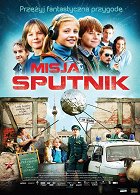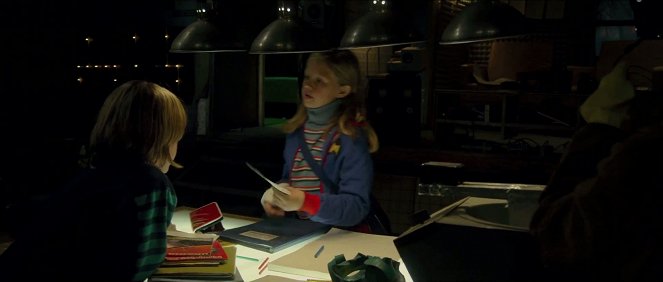Drehbuch:
Markus DietrichKamera:
Philipp KirsamerBesetzung:
Devid Striesow, Yvonne Catterfeld, Maxim Mehmet, Ursula Werner, Marie Gruber, Jacob Matschenz, Andreas Schmidt, Bernd Stegemann, Flora Thiemann (mehr)Streaming (3)
Inhalte(1)
Für die zehnjährige Friederike beginnt der Oktober 1989 mit einem Donnerschlag: Ihr Onkel Mike, Captain ihres geheimen Labors für Kosmonautik in Malkow, hat einen Ausreiseantrag nach West-Deutschland gestellt und muss die DDR sofort verlassen. Das bedeutet, dass Friederike ihren Onkel erst wieder sehen darf, wenn sie selbst in Rente ist. Weil Friederike aber keine Lust hat, so lange zu warten, entwickelt sie mit dem Rest ihrer Crew eine Beam-Maschine, um Onkel Mike zurück in den Osten zu beamen. So wie ihr Vorbild „Captain Burgh“ auf der Interspace. Aber das Experiment geht schief und statt Onkel Mike in den Osten, werden plötzlich die Dorfbewohner von Malkow in den Westen gebeamt. Für einen Moment sieht es so aus, als seien die drei Freunde Friederike, Fabian und Jonathan die letzten Menschen auf der Welt. Erst der Fernseher macht ihnen klar, was passiert ist. Die Dorfbewohner versuchen nun verzweifelt, über die Mauer zurück in den Osten zu klettern. Die Kinder müssen schnell alle Hebel in Bewegung setzen, um das Geschehene wieder rückgängig zu machen. (KiKA)
(mehr)Kritiken (1)
Even though this children’s adventure movie set in East Germany at the end of the communist regime seems rather boisterous and playful, it is at its core extremely problematic it its trivialisation of history. The film’s main drawback consists in the fact that the child protagonists are not merely participants in major historical events, which could thus be connected with personal stories in the mould of Forrest Gump, but – as in the case of the insipid Czech film Tender Waves, set in the period of normalisation in Czechoslovakia – they rewrite history in the form of anecdotes taken out of context. In particular, the fall of the Berlin Wall is shown as an incidental side effect of a pseudo-scientific apparatus devised by the children based on a fictional series (which apparently must have been Star Trek). However, the period has no real influence on the narrative (the uncle’s escape across the border is presented in such a way that children will not understand from the narrative where he went or why, so the film could just as well have been set in the present and the uncle could have gone abroad for work). It definitely cannot be said that the film familiarises children with history in this way, or rather that children wouldn’t be able to bear a realistic depiction of the era. For comparison, it suffices to recall the children excellent What Have We Learned, Charlie Brown?, which has the clear purpose of presenting major historical events to young children, but with respect for history and the intellect of children, which it does not underestimate, and superbly balances accessibility and comprehensibility with seriousness. Mission: Sputnik does not present history to children in an instructive form, nor does it put the adventure story in the context of history, but merely shows history as a fairy tale in which historical events do not anchor the narrative in reality, but are instead transformed into a fantasy element that loses its primary meaning.
()

